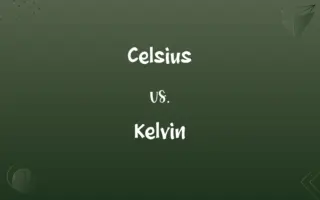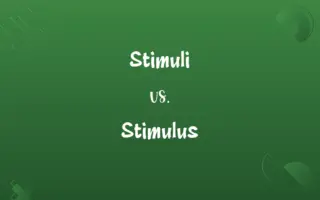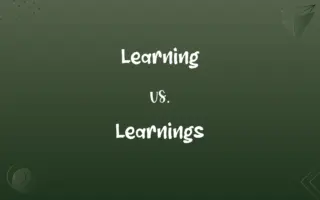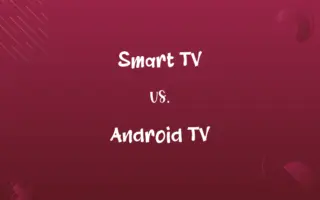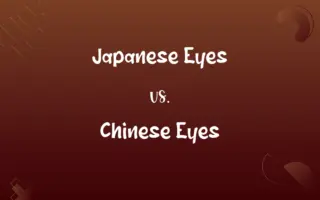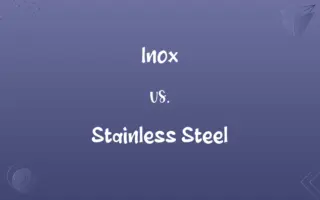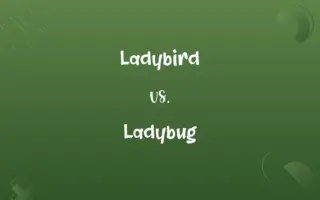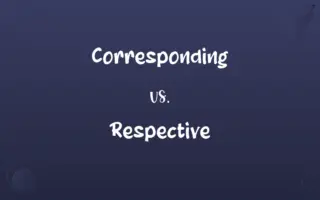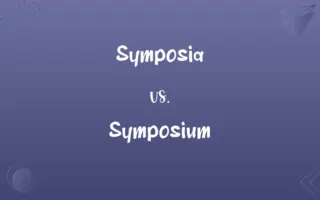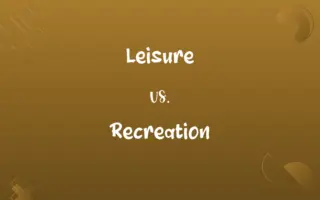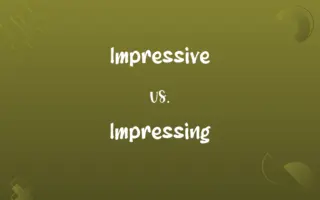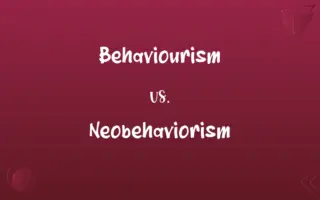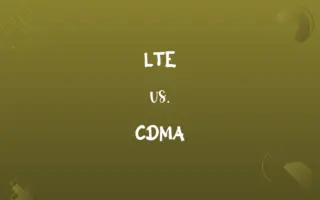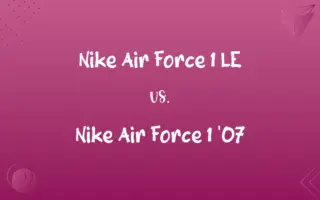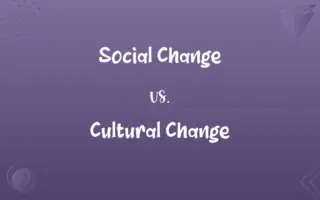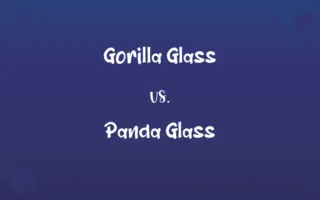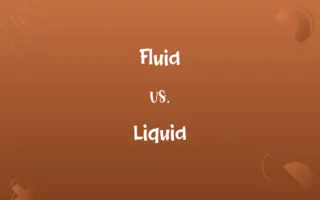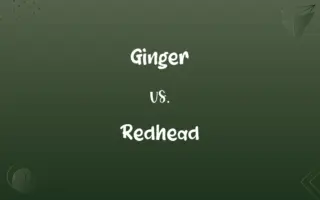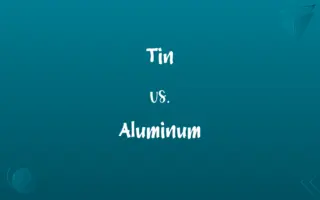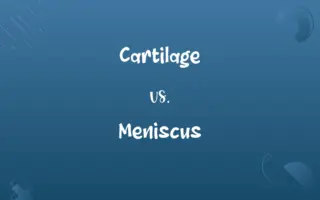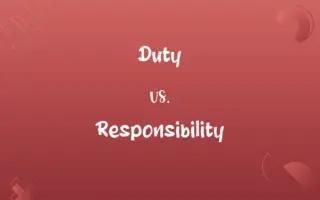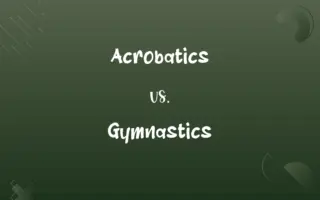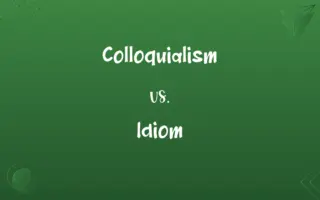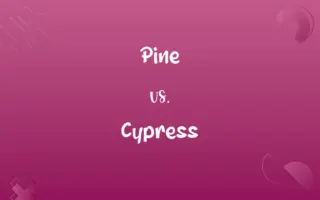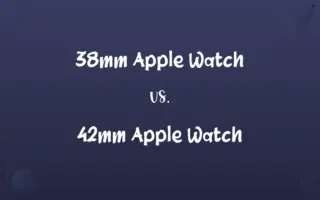Have You vs. Did You: Know the Difference

By Shumaila Saeed || Published on December 28, 2023
"Have you" implies a question about a current or ongoing experience, while "Did you" asks about a specific event in the past.
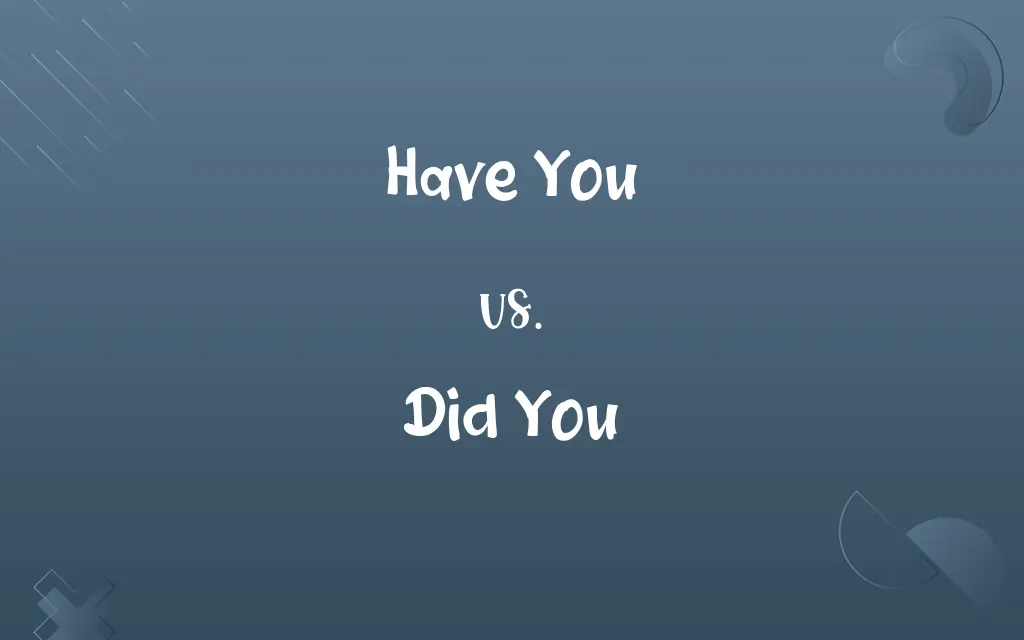
Key Differences
"Have you" is used in present perfect tense, focusing on experiences or actions that are relevant to the present or are still ongoing. "Did you," in contrast, is in the simple past tense, specifically asking about actions or experiences that have been completed in the past.
Shumaila Saeed
Dec 28, 2023
When using "Have you," it often suggests that the action or experience could still be continuing or have a present relevance. "Did you," however, clearly indicates that the event is in the past, with no direct implication on the present.
Shumaila Saeed
Dec 28, 2023
The use of "Have you" can sometimes imply an expectation or possibility of the experience occurring, while "Did you" is more straightforward, simply inquiring about whether an event happened or not.
Shumaila Saeed
Dec 28, 2023
In questions involving "Have you," the emphasis is often on the experience itself rather than its timing. Conversely, "Did you" emphasizes the occurrence of an event at a specific time in the past.
Shumaila Saeed
Dec 28, 2023
"Have you" is often used in contexts where the outcome or effect of the action is of interest in the present. In contrast, "Did you" is used when the interest is solely in the occurrence of the past action.
Shumaila Saeed
Dec 28, 2023
ADVERTISEMENT
Comparison Chart
Time Relevance
Current or ongoing relevance
Strictly past with no present link
Shumaila Saeed
Dec 28, 2023
Experience Focus
Emphasizes experience over timing
Emphasizes specific past events
Shumaila Saeed
Dec 28, 2023
Continuity
Can imply continuity or possibility
Clearly indicates a finished action
Shumaila Saeed
Dec 28, 2023
Contextual Use
Common in checking current status
Used for confirming past actions
Shumaila Saeed
Dec 28, 2023
ADVERTISEMENT
Have You and Did You Definitions
Have You
Seeking confirmation on recent actions.
Have you finished your homework?
Shumaila Saeed
Dec 12, 2023
ADVERTISEMENT
Did You
Asking about specific past events.
Did you go to the concert last night?
Shumaila Saeed
Dec 12, 2023
Have You
Exploring ongoing situations.
Have you been watching that new show?
Shumaila Saeed
Dec 12, 2023
Did You
Probing for past knowledge or awareness.
Did you know about the meeting?
Shumaila Saeed
Dec 12, 2023
Repeatedly Asked Queries
Is "Did you" only for distant past events?
No, it can be used for any past event, regardless of how recent.
Shumaila Saeed
Dec 28, 2023
Can "Have you" imply expectation?
Yes, it often suggests an expectation or possibility.
Shumaila Saeed
Dec 28, 2023
Is "Did you" used in formal contexts?
Yes, it's appropriate in both formal and informal contexts.
Shumaila Saeed
Dec 28, 2023
Does "Have you" require specific time references?
No, it generally doesn't emphasize specific timing.
Shumaila Saeed
Dec 28, 2023
Can "Did you" inquire about recent actions?
Yes, if the action is completed and in the past.
Shumaila Saeed
Dec 28, 2023
Is "Have you" used for life experiences?
Yes, especially for general life experiences.
Shumaila Saeed
Dec 28, 2023
What's the difference between "Have You" and "Do You"?
"Have You" is used to ask about possession or experiences, while "Do You" is used to inquire about general actions or activities.
Shumaila Saeed
Dec 28, 2023
Can "Have you" refer to the past?
Yes, but it relates the past to the present context.
Shumaila Saeed
Dec 28, 2023
Can you give an example of "Have You" in a sentence?
Sure! "Have you visited Paris before?"
Shumaila Saeed
Dec 28, 2023
What's the difference between "Did You" and "Have You"?
"Did You" is used for past actions, while "Have You" is used for possession or experiences, typically in the present or recent past.
Shumaila Saeed
Dec 28, 2023
Is there a difference between "Did You" and "Have You ever"?
"Have You ever" is often used to inquire about experiences in a person's entire life, while "Did You" asks about specific past events.
Shumaila Saeed
Dec 28, 2023
Can "Did you" ask about habits?
It's less common; "Used to" is more appropriate for past habits.
Shumaila Saeed
Dec 28, 2023
Does "Have you" suggest ongoing relevance?
Yes, it often implies current relevance or impact.
Shumaila Saeed
Dec 28, 2023
Is "Have You" used in formal or informal language?
"Have You" can be used in both formal and informal contexts, depending on the situation and your relationship with the person you are addressing.
Shumaila Saeed
Dec 28, 2023
Can you give an example of "Did You" in a sentence?
Certainly! "Did you see the movie last night?"
Shumaila Saeed
Dec 28, 2023
Can "Have You" and "Did You" be used in indirect questions?
Yes, they can be used in indirect questions, such as "I wonder if you have visited Paris."
Shumaila Saeed
Dec 28, 2023
Is "Did You" used in formal or informal language?
"Did You" is commonly used in both formal and informal language when referring to past actions.
Shumaila Saeed
Dec 28, 2023
Can "Did You" be used to ask about past habits?
Yes, you can use "Did You" to ask about past habits, as in "Did you used to play the piano?"
Shumaila Saeed
Dec 28, 2023
Can "Have You" be used with the future tense?
No, "Have You" is typically used for present or past actions and possession.
Shumaila Saeed
Dec 28, 2023
Share this page
Link for your blog / website
HTML
Link to share via messenger
About Author
Written by
Shumaila SaeedShumaila Saeed, an expert content creator with 6 years of experience, specializes in distilling complex topics into easily digestible comparisons, shining a light on the nuances that both inform and educate readers with clarity and accuracy.


